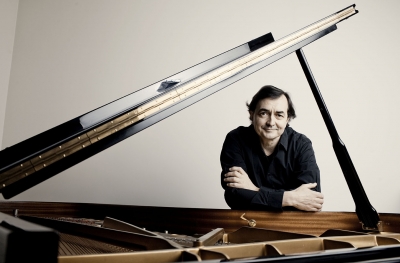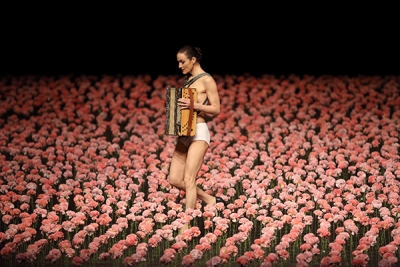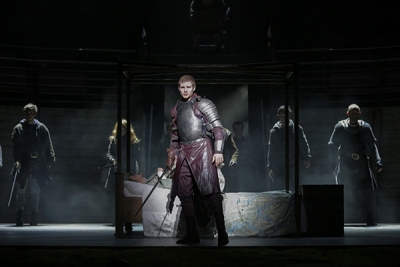Arts
Film | Theatre | Art | Opera | Music | Television | Festivals
Welcome to ABR Arts, home to some of Australia's best arts journalism. We review film, theatre, opera, music, television, art exhibitions – and more. To read ABR Arts articles in full, subscribe to ABR or take out an ABR Arts subscription. Both packages give full access to our arts reviews the moment they are published online and to our extensive arts archive.
Meanwhile, the ABR Arts e-newsletter, published every second Tuesday, will keep you up-to-date as to our recent arts reviews.
Recent reviews
Everything, it seems, depends on Juliet: for nothing can be ill, if she be well cast. And if she not be well cast? The question is an idle one, because in Kelly Paterniti we have an excellent Juliet. She is vibrant and original. Whatever faults this new Bell Shakespeare production may have, in her ...
... (read more)Vingts Regards sur l'Enfant-Jésus (Melbourne Recital Centre) ★★★★★ and Sir Andrew Davis Conducts Mahler 5 (Melbourne Symphony Orchestra) ★★★★1/2
Vingt Regards sur l'Enfant-Jésus (Twenty Contemplations on the Christ Child) was written in 1944 by Olivier Messiaen (1908–92) for his muse, subsequent wife, and dedicatee of the cycle, the pianist Yvonne Loriod. The cycle consists of twenty works of varying length for solo piano ...
... (read more)Nelken (Carnations): Tanztheater Wuppertal Pina Bausch (Adelaide Festival of Arts 2016) ★★★★★
Over decades of productions in the Festival Theatre, I can recall a handful of experiences that resulted in immediate, unprompted, and collective standing ovations, beginning with the unforgettable journey that was Richard Wherrett's epic staging of Nicholas Nickleby (1983). Pina Bausch's ...
... (read more)Ahandful of storylines recur in the family drama genre. The premise of an individual returning home, with a secret that threatens to disrupt the equilibrium of a family unit, after a period of self-imposed exile in order to fulfil filial obligations is well established, if not always predictable ...
... (read more)The two high-profile theatre productions featured at this year's Adelaide Festival – the National Theatre of Scotland's imaginative and engaging account of the life and times of the three King Jameses, The James Plays Trilogy, and Romeo Castellucci's mostly impenetrable take on ...
... (read more)Henry Lawson, in his story The Bush Undertaker (1892), refers to the Australian landscape as 'the nurse and tutor of eccentric minds, the home of the weird, and of much that is different from things in other lands'. It is precisely this otherness – this tendency toward the uncanny – that Joan Lindsay ...
... (read more)Reaching for an English word to capture the shifting rhythmic pulse of his Concerto Italiano's performances of Monteverdi, director Rinaldo Alessandrini hazarded 'elasticity'. 'Is that the word?', he queried ABC Radio National's Andrew Ford (who had suggested 'freedom'). It was, yes, ...
... (read more)The Lady in the Van may be a great comic character, but she is one of the unlikelier Britons ever to earn a blue plaque in her honour. Yet one now adorns the façade of 23 Gloucester Crescent, the London address that she besieged for fifteen years. Alan Bennett – her landlord of sorts ...
... (read more)In this era of the jukebox musical, it is not surprising that the seventeenth- and eighteenth-century equivalent, the pasticcio opera, should be undergoing a revival. A couple of seasons ago, New York's Metropolitan Opera created a version, The Enchanted Island, which received a mainly ...
... (read more)The gestation of some of Giuseppe Verdi's operas was more tumultuous than his often twisted plots. Luisa Miller – which is now being seen in Sydney prior to a shorter season in Melbourne – was as fraught as any of them? Salvatore Cammarano owed the Teatro San Carlo in Naples a libretto ...
... (read more)









